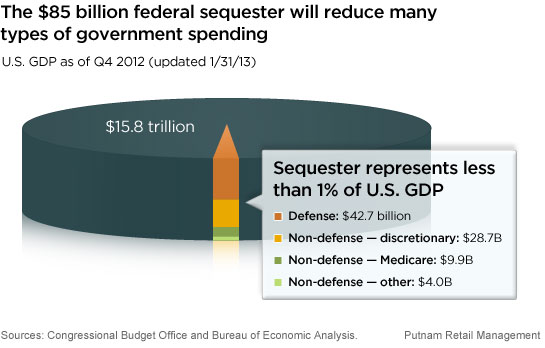With the automatic spending cuts, or sequestration, required by the Budget Control Act of 2011 still on track to go into effect starting Friday, March 1, we believe it’s important to keep the full impact in perspective.
Even if we do go into a sequestration mode in the United States, or get bogged down in negotiations, the effect might be a mild recession for a short time. However, we do not see this as a global disruption that sets everything back and causes the kind of pain we had in 2008.

This is not like the European situation of last year, either. Europeans had multiple constituencies that were trying to negotiate through very severe structural issues. That’s not to discount the severity of the U.S. budget situation, but the immediate consequences are milder. If there had been a major disruption or a blowup of the eurozone last year, it’s likely to have appeared similar to 2008 in the United States, with its collapse of banks and major financial disruptions.
Drawing on the parallel with Europe, the U.S. situation is different because there are only two political constituencies here. That makes it much easier for the population to see which side is more at fault if the problem worsens. Obviously, negotiating tactics mean that both sides would want to take things up to the final minute, rather than compromise early, so that they do not alienate their own constituencies. Nevertheless, there is reason for compromise on both sides.
More in: Macroeconomics, Outlook


